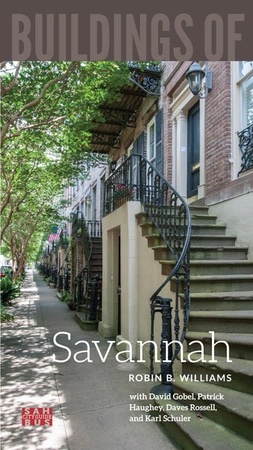
In 1883 this house became the first in the city to be electrified. Hamilton was a founder of the Brush Electric Light and Power Company, which installed its first electric streetlight in Lafayette Square that same year. In contrast to the more sober classicism of the Andrew Low House (8.14) across the square, this is the city’s grandest Second Empire residence, with ornate quoining, window hood molds, lintels, and a crowning mansard roof. Converted to an inn in 2000 (work by J. T. Turner Construction), the building benefits from its celebrated role as the house of Joe Odum in John Berendt’s book Midnight in the Garden of Good and Evil (1994). Across the street at 207 E. Charlton (1856) is the childhood home of the noted writer Flannery O’Connor.

